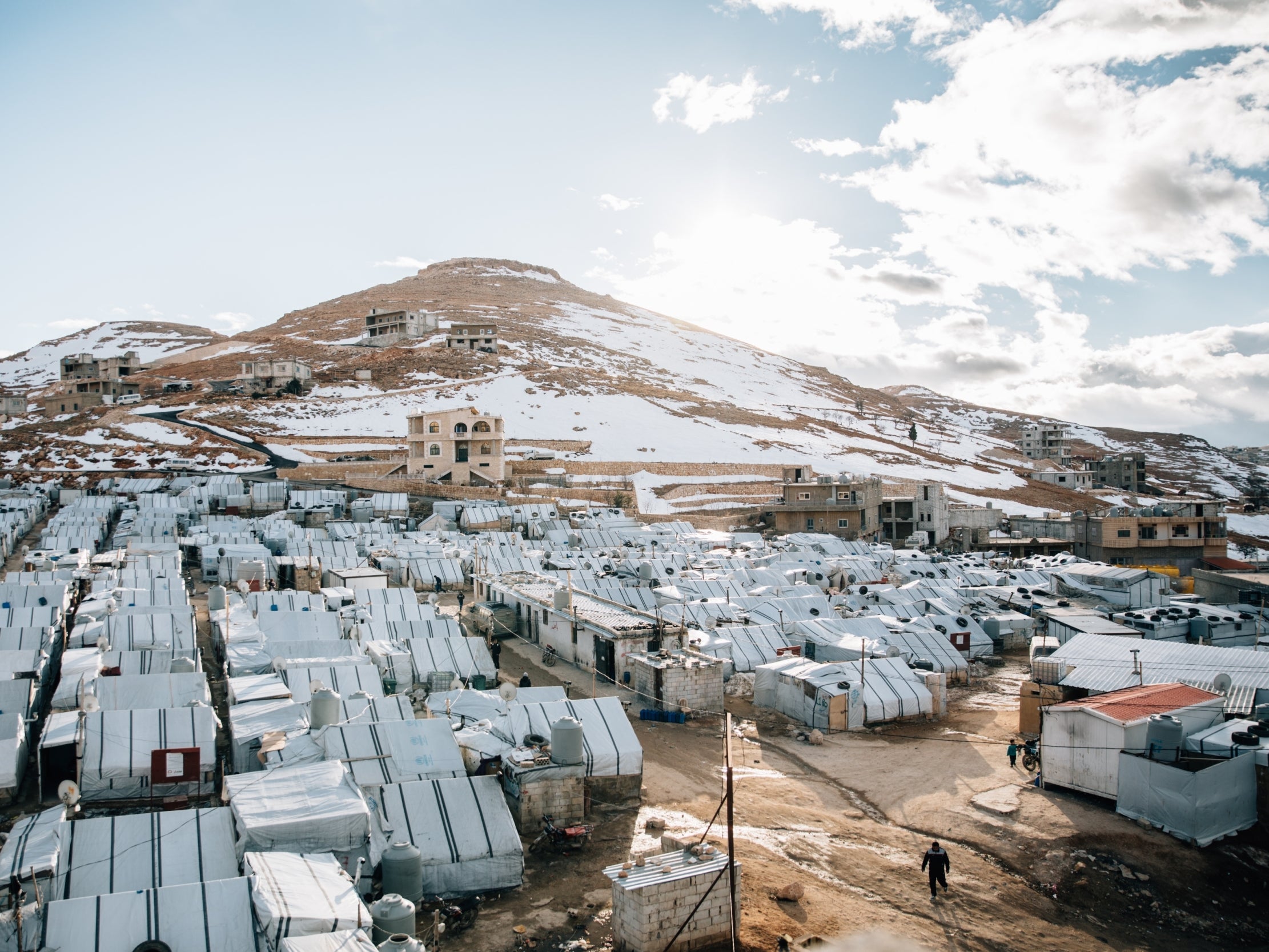Lebanon is struggling to cope with Syrian refugees, but young people are pushing the country to be positive
I am not a refugee, but a member of a community which suddenly found a million and a half refugees in our midst.


Your support helps us to tell the story
From reproductive rights to climate change to Big Tech, The Independent is on the ground when the story is developing. Whether it's investigating the financials of Elon Musk's pro-Trump PAC or producing our latest documentary, 'The A Word', which shines a light on the American women fighting for reproductive rights, we know how important it is to parse out the facts from the messaging.
At such a critical moment in US history, we need reporters on the ground. Your donation allows us to keep sending journalists to speak to both sides of the story.
The Independent is trusted by Americans across the entire political spectrum. And unlike many other quality news outlets, we choose not to lock Americans out of our reporting and analysis with paywalls. We believe quality journalism should be available to everyone, paid for by those who can afford it.
Your support makes all the difference.For most people in the UK, Brussels is all about the ongoing Brexit delays. What hasn’t made the news is the other important issues being discussed in the European Parliament.
In March, I stood in front of a thousand people in the Belgian capital, including world leaders and delegates from 56 countries. I was there to tell them how the Syria crisis has affected my life.
I am not a refugee, but a member of a community which suddenly found a million and a half refugees in our midst.
When the war in Syria broke out eight years ago, I was barely a teenager. Almost overnight, my small home country of Lebanon, with a population of only five million, saw a huge influx of people fleeing violence, terror and persecution. Most needed urgent humanitarian assistance.
Now around one in four people in Lebanon is a refugee.
Even before the Syrian crisis, the Lebanese economy was suffering. When the Syrians came, it created additional pressure. Youth unemployment is at an all-time high, and the proportion of Lebanese nationals living below the poverty line has just topped 30 per cent.
When I was invited to address the Brussels conference, titled Supporting the Future of Syria and the Region, I chose not speak about the problems the Syrian crisis has brought to neighbouring countries. Instead, I told them about the solutions, the opportunities, that have arisen from this dire situation.
Five years ago, I started volunteering to help the hundreds of thousands of refugees who were arriving. I wanted to help because they needed so much, and the Lebanese government could not do everything.
At first, my parents were not happy. Nor were my friends. Our culture has strict rules when it comes to young girls socialising, participating in activities, volunteering and joining youth groups. And many people in Lebanon blame the refugees for our problems – especially economic problems.
I began taking part in an EU MADAD trust fund “Youth Resolve” project close to my home. It was run by UK aid agency CAFOD and Caritas Lebanon. Its main objective is to bring Syrian and Lebanese youth together.
Now I have many Syrian friends and have begun to understand the difficulties and hardships that refugees face. I learned that you can never really judge somebody when you don’t know what their life is like. I want to convince people that no matter where you come from, we are all humans, with the same wants and needs.
We have been able to change some of the perspectives on both sides – among Lebanese people and refugees – and it inspired me to do more. People around me have started to understand that the Syrians did not come here by choice; they were forced to come here, and if they could go home, most of them would. These are all steps on the path to equal treatment.
And when I stood up to speak in Brussels, in front of the people who can bring about material change, I was excited that this recognition might help us to take more of those steps.
Young people can affect the older generation’s opinion and should take the chance to do so. We will be the ones raising the next generation, and we don’t need to do that based on opinions from another time. In the future, I hope to create a youth council back in Lebanon, where young people can share their views and be represented.
I will never forget the struggles I faced when I tried to create a change, but when I spoke out I was able to succeed. This is only the beginning.
Join our commenting forum
Join thought-provoking conversations, follow other Independent readers and see their replies
Comments